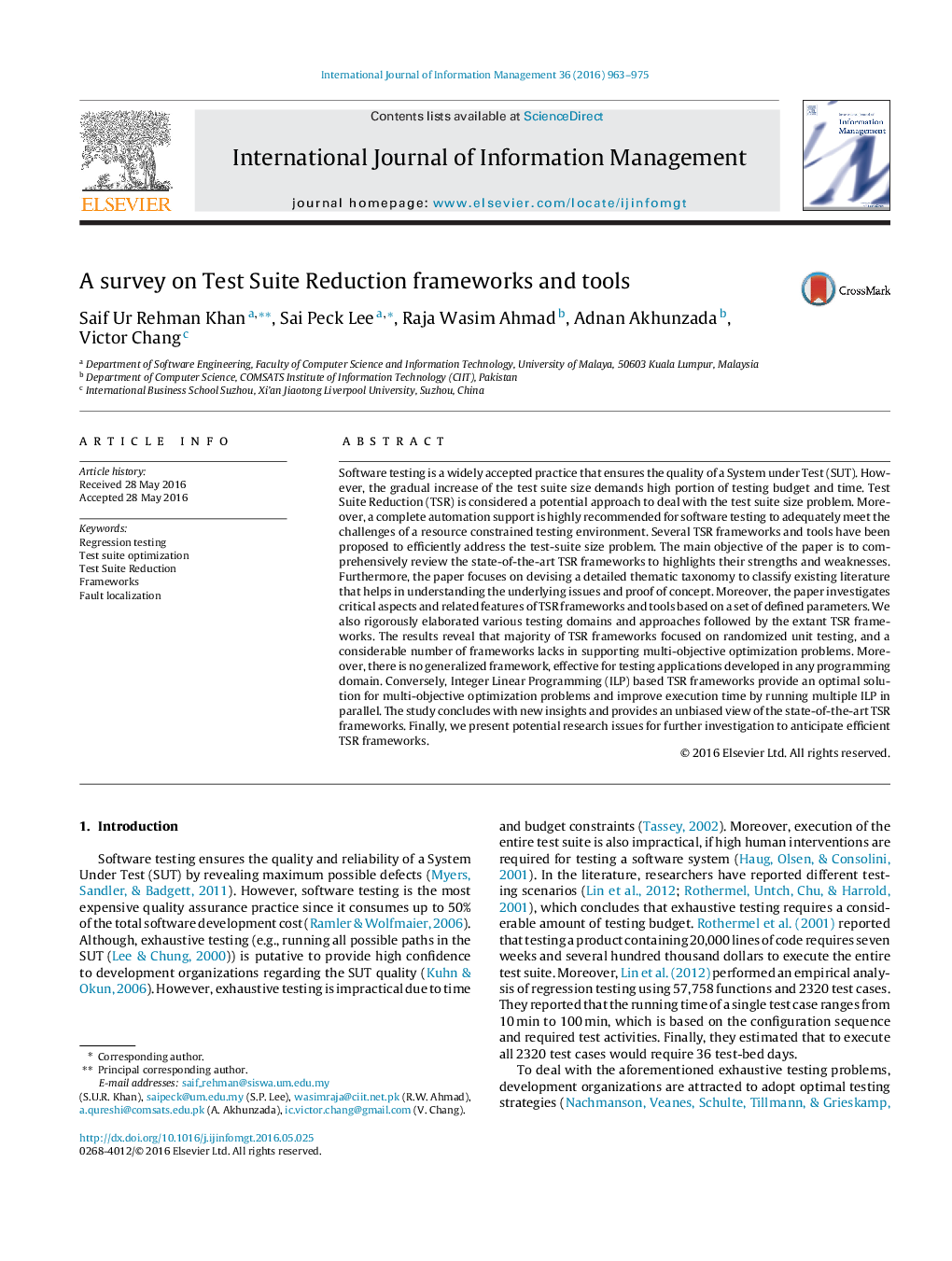| کد مقاله | کد نشریه | سال انتشار | مقاله انگلیسی | نسخه تمام متن |
|---|---|---|---|---|
| 1025464 | 1483192 | 2016 | 13 صفحه PDF | دانلود رایگان |
• An extensive review on automated support for TSR.
• Presenting a thematic taxonomy to categorize the existing literature based on testing domains and corresponding parameters.
• Providing a detailed comparative analysis of TSR frameworks based on the devised taxonometric parameters.
• Synthesizing current state-of-the-art based on the underlying common philosophies.
• Highlighting several potential research issues in this field of study.
Software testing is a widely accepted practice that ensures the quality of a System under Test (SUT). However, the gradual increase of the test suite size demands high portion of testing budget and time. Test Suite Reduction (TSR) is considered a potential approach to deal with the test suite size problem. Moreover, a complete automation support is highly recommended for software testing to adequately meet the challenges of a resource constrained testing environment. Several TSR frameworks and tools have been proposed to efficiently address the test-suite size problem. The main objective of the paper is to comprehensively review the state-of-the-art TSR frameworks to highlights their strengths and weaknesses. Furthermore, the paper focuses on devising a detailed thematic taxonomy to classify existing literature that helps in understanding the underlying issues and proof of concept. Moreover, the paper investigates critical aspects and related features of TSR frameworks and tools based on a set of defined parameters. We also rigorously elaborated various testing domains and approaches followed by the extant TSR frameworks. The results reveal that majority of TSR frameworks focused on randomized unit testing, and a considerable number of frameworks lacks in supporting multi-objective optimization problems. Moreover, there is no generalized framework, effective for testing applications developed in any programming domain. Conversely, Integer Linear Programming (ILP) based TSR frameworks provide an optimal solution for multi-objective optimization problems and improve execution time by running multiple ILP in parallel. The study concludes with new insights and provides an unbiased view of the state-of-the-art TSR frameworks. Finally, we present potential research issues for further investigation to anticipate efficient TSR frameworks.
Journal: International Journal of Information Management - Volume 36, Issue 6, Part A, December 2016, Pages 963–975
